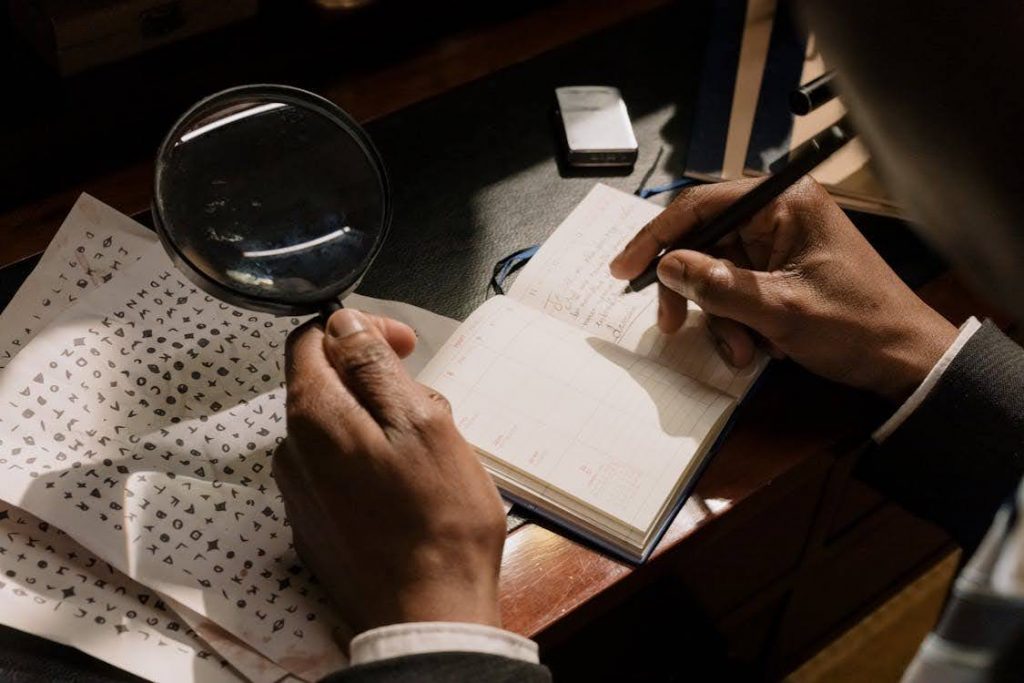What is a private investigator? In simple terms, a private investigator—often referred to as a PI—is a professional hired to gather information, conduct surveillance, and uncover facts on behalf of a private client. Unlike police officers who are bound by public mandates and criminal investigations, private investigators work independently or through licensed agencies to handle personal, civil, or corporate matters.
People often turn to private investigators when they need discreet and objective help to uncover the truth. Whether it’s confirming suspicions of infidelity, locating a missing person, or investigating potential corporate misconduct, PIs provide services that help clients make informed decisions.
While their work may at times seem similar to law enforcement, private investigators do not have police powers and must work within the legal boundaries set by the authorities.
What Does a Private Investigator Do?
So, what does a private investigator do? At the core, a private investigator is responsible for conducting research, observing subjects, and collecting evidence to support a client’s case. Their work often involves long hours of discreet surveillance, verifying information, and putting together findings in a detailed report.
In personal cases, a PI might track a cheating spouse, check on a domestic helper’s behavior, or help locate estranged family members. In corporate scenarios, they may investigate employee misconduct, internal fraud, or even copyright violations. Some specialise in background checks or asset tracing for legal disputes.
What is private investigator work really like? It’s methodical, legally compliant, and often highly confidential. Whether through direct observation, database research, or interviews, private investigators use a combination of old-school techniques and modern tools to uncover relevant facts. Their findings may be used in court proceedings, HR actions, or personal decision-making—depending on the nature of the case.
What Can A Private Investigator Do Legally?

What can a private investigator do within the limits of the law? While they aren’t granted the same authority as police officers, licensed private investigators can legally carry out several tasks that help uncover facts for personal or legal matters.
One of the most common and legal methods used is surveillance. A private investigator can follow someone in public spaces, take photographs or videos, and observe patterns of behavior. This is particularly useful in cases involving suspected infidelity, employee misconduct, or fraudulent claims.
Private investigators can also gather data from public records and open sources. This includes searching for business registrations, property ownership, legal filings, and social media activity. By compiling publicly accessible information, a PI can build a comprehensive picture without violating privacy laws.
In short, what can a private investigator do? They can observe, document, and analyse—as long as they stay within the bounds of lawful methods. Respecting privacy rights and following legal procedures is not just best practice—it’s a requirement in Singapore.
What Can a Private Investigator Not Do?
Understanding what can a private investigator can do and not do is just as important as knowing their legal capabilities. Despite what popular media often suggests, private investigators do not have unrestricted access to personal data or secretive surveillance tools.
They cannot hack into someone’s phone, email, or computer systems. Doing so would be a breach of cybersecurity and privacy laws. Similarly, wiretapping conversations, unless expressly permitted by the law or with proper consent, is prohibited.
Trespassing on private property is also illegal. A PI is not allowed to break into homes, access locked buildings, or enter restricted areas to gather evidence. Nor can they impersonate police officers or government officials to gain access to confidential information.
A common misconception is that private investigators have special permissions to bypass the law. In reality, they are bound by the same legal framework as everyone else. Knowing what a private investigator can do and not do helps clients engage with them responsibly and legally.
When Should You Hire a Private Investigator?

There are situations where gathering facts privately can be especially useful. Hiring a private investigator is not about being suspicious—it’s about having peace of mind or obtaining clarity for important decisions.
A common reason people engage PIs is to investigate a potentially unfaithful spouse. Surveillance and documentation can provide clear evidence for personal or legal use. In the corporate setting, employers might hire an investigator to look into employee misconduct, insurance fraud, or misuse of company resources.
Private investigators are also called upon in missing persons cases, whether involving a family member, friend, or debtor. Their experience in locating people through public data and fieldwork can make a real difference, especially when time is of the essence.
In all these cases, a private investigator supports clients by offering factual, unbiased reporting. Their role is to help individuals and organisations make informed choices—based on evidence, not assumptions.
Hiring a Licensed Investigator in Singapore

When considering private investigation services, it’s important to ensure the professional you’re hiring is licensed. In Singapore, all private investigators must be certified by the Police Licensing & Regulatory Department (PLRD) under the Ministry of Home Affairs. This ensures they’ve undergone the required training and adhere to local laws and regulations.
To verify a PI’s credentials, ask for their license number or check with the agency they work for. Legitimate agencies will have no issue confirming their status. You can also cross-check via official government channels or request references from past clients if necessary.
During your first consultation, the investigator will typically review your concerns, explain what can or cannot be done, and outline the estimated cost and timeline. You should expect transparent communication, a written agreement, and regular updates throughout the process. A professional PI will never promise illegal services or guaranteed results—they will, however, offer their full effort and lawful expertise.
Conclusion About What Is A Private Investigator
So, what is a private investigator? At its core, it’s a licensed professional who helps uncover facts through legal means—whether that’s through surveillance, background checks, or evidence collection. While private investigators can provide valuable support in both personal and business matters, their work is governed by strict legal guidelines that protect individuals’ rights.
Understanding what a private investigator can do and not do helps ensure expectations are realistic and that the process remains ethical and lawful. Whether you’re dealing with sensitive personal concerns or complex corporate issues, a qualified PI can help bring clarity and closure.
If you believe you may need discreet and professional investigation services, reach out to CatchCheating for expert private investigation services. With experienced, licensed investigators and a commitment to legal compliance, you’ll be in reliable hands from start to finish.
Frequently Asked Questions About What Private Investigators Do
Is It Legal To Hire A Private Investigator In Singapore?
Yes, hiring a licensed private investigator is legal in Singapore. However, they must operate within the laws set by the government and cannot engage in illegal activities like hacking or trespassing.
Can Private Investigators Access Private Messages Or Emails?
No, private investigators are not allowed to hack into private digital accounts, including emails or social media. Accessing this type of data without consent is illegal.
How Long Does A Typical Investigation Take?
The duration varies depending on the complexity of the case. Some investigations can take just a few days, while others may require weeks of surveillance and research.
Will The Investigation Remain Confidential?
Yes, licensed investigators are bound by confidentiality agreements. All details of your case are kept strictly private, and findings are only shared with you.
Do I Need To Report The Case To The Police Before Hiring A PI?
No, you do not need to make a police report to hire a private investigator. Many clients approach PIs to gather evidence before deciding whether to involve law enforcement or legal counsel.
How Much Does It Cost To Hire A Private Investigator In Singapore?
Costs vary depending on the service, duration, and complexity of the case. Some agencies charge hourly rates, while others offer fixed packages. It’s best to request a clear quotation during the initial consultation.















